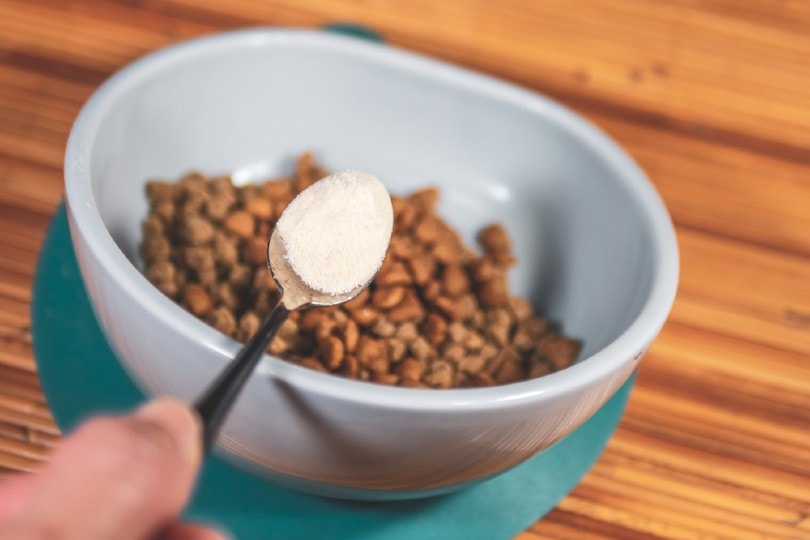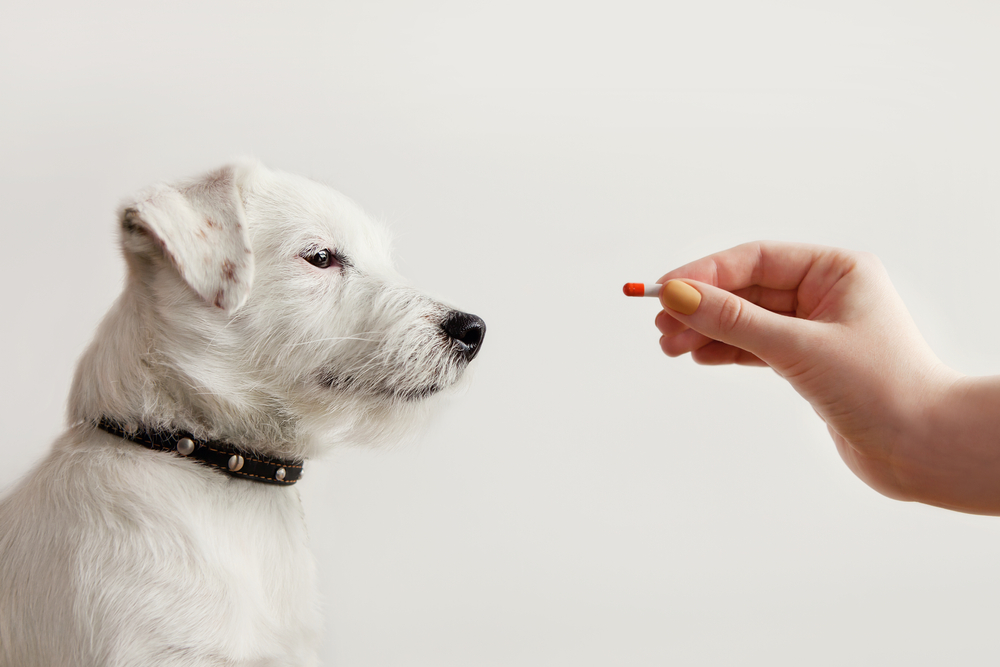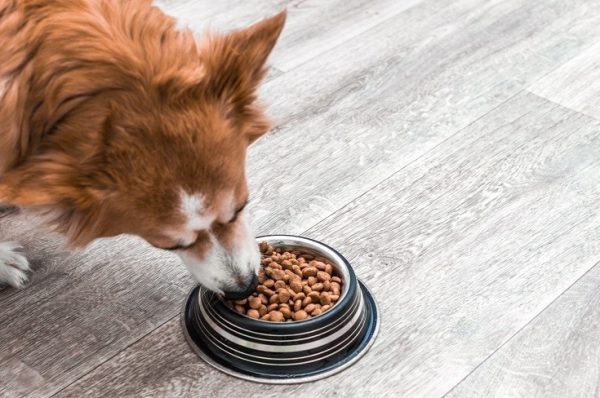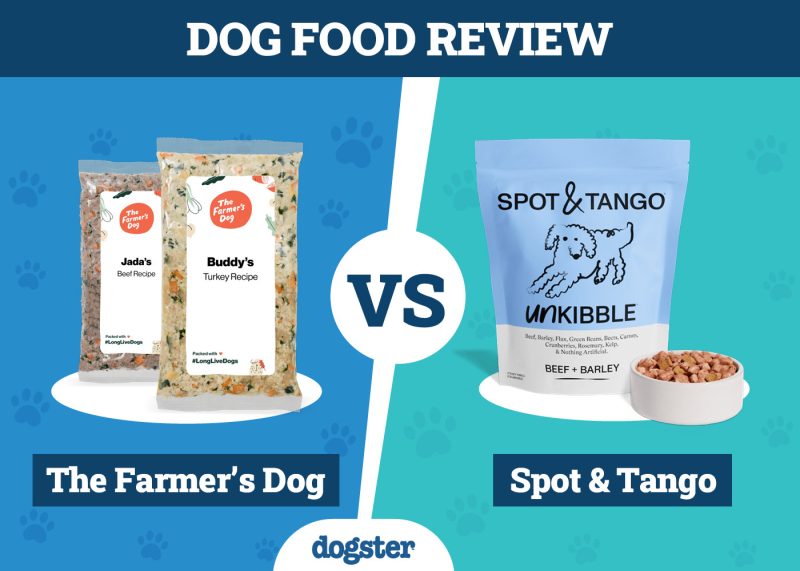In this article
View 5 More +You probably know that probiotics are good for your gut health and may have seen them advertised on yogurt. As a dog owner, however, did you know that probiotics can also be beneficial for your dog’s digestive health? It’s true! There isn’t a lot of detailed research available on the topic, but preliminary results suggest probiotics can have multiple tangible health benefits for your pooch.

What Are Probiotics?
Probiotics are beneficial bacteria or microorganisms that live in the stomach and intestinal tract. These microbes are considered beneficial because they have desirable effects on stomach health, including canceling out harmful bacteria, fighting disease, creating nutrients in the body, and promoting a more harmonious gut. Certain yogurt, cheese, and pickles are a few examples of foods that contain probiotics.

Benefits of Probiotics for Dogs
Above, we said that probiotics can be good for your dog’s stomach, but what exactly does that mean? What do they do? It’s a fair question and more open-ended than you might think. Research on probiotics is fairly light, and even more so when it comes to probiotics for our canine companions. We do have a pretty good idea of some things they can do, however! Let’s check out some benefits your dog could receive by taking probiotics.
- Aids digestion and reduces upset stomachs
- Reduces diarrhea
- Boosts the immune system
- May improve stress and anxiety
- Decreases bad bacteria in the gut
Anecdotal reports tout other benefits like enhanced skin and coat health, but it’s unclear whether that’s backed by science yet. If you see a probiotic that makes fantastic claims, it’s best to be a little wary and call a vet to see what they think of the product in question.
If you need to speak with a vet but can't get to one, head over to PangoVet. It's our online service where you can talk to a vet online and get the personalized advice you need for your pet — all at an affordable price!


How Are Probiotics Given?
- Powders
- Capsules
- Chews
- Dog foods
- Yogurt of kefir containing live cultures
Note that not all yogurt cultures are the same. Some may be used simply to manufacture the product but are not actually considered probiotics. If you choose to offer probiotics via yogurt after approval from your vet, only offer unsweetened, plain yogurt to them and avoid all artificial sweeteners, such as xylitol, which is toxic to dogs.
These types of products are most helpful when they contain the bacteria that are naturally found in your dog’s gut.
Does My Dog Need Probiotics?
Many dogs can benefit from a probiotic supplement or plain yogurt on occasion, but how do you know if that’s your dog? So many health products make spurious claims that it’s hard to tell if probiotics can really make a difference for your dog. Thankfully, there are some signs that your dog could benefit from a probiotic.
- They have frequent diarrhea
- They experience an upset stomach often
- They have foul-smelling stool
- They have an irregular need to go potty
These problems often indicate a gastrointestinal problem that can be traced back, in part, to an imbalanced stomach microbiome. Giving your dog probiotics could help balance things out, so to speak, and get their gastrointestinal system running like clockwork. It’s always worth talking to your vet about whether probiotics could be a possible solution to your dog’s stomach troubles, as there may be another underlying cause to blame that probiotics alone won’t fix.

Potential Side Effects of Probiotics for Dogs
Just as important as benefits when discussing probiotics are the potential drawbacks. Probiotics have some seriously useful benefits, but they can affect dogs differently. Some dogs take them and experience profound relief, while others experience some negative side effects along the way before relief comes their way. These are uncommon but may include gas or worsened diarrhea, amongst others.

Frequently Asked Questions (FAQ)
Are There Any Adverse Effects if My Dog Stops Taking Probiotics?
Maybe. It’s possible that your dog’s original stomach problem could reoccur if the probiotic was helping. We always recommend asking a vet their opinion on whether probiotics are viable long-term for your dog’s digestive health.
Can Dogs Take Probiotics Intended for Humans?
You might be surprised to learn that probiotics are species-exclusive, though your dog can reap some benefits by taking the same probiotics you do. That doesn’t mean they should, though. Dogs have a different stomach microbiome than we do, and while we both benefit from some probiotics, products made for dogs are generally healthier for them.
How Long Do Probiotics Take to Work for Dogs?
Probiotics can take days to weeks to have a noticeable effect because they have to proliferate in the stomach and form a healthy colony to make a difference in the stomach microbiome. Some products can have an effect within just a few days, while other products can take a month or more to work.

Conclusion
Probiotics can make a huge difference for some dogs suffering constipation, diarrhea, or other stomach problems. It’s also hard to gauge exactly how much of a difference they’ll make or what types of side effects can pop up. Like any other major health concerns, we urge you to contact your vet about whether probiotics could be right for your dog.
Featured Image Credit: Liudmyla Guniavaia, Shutterstock


















